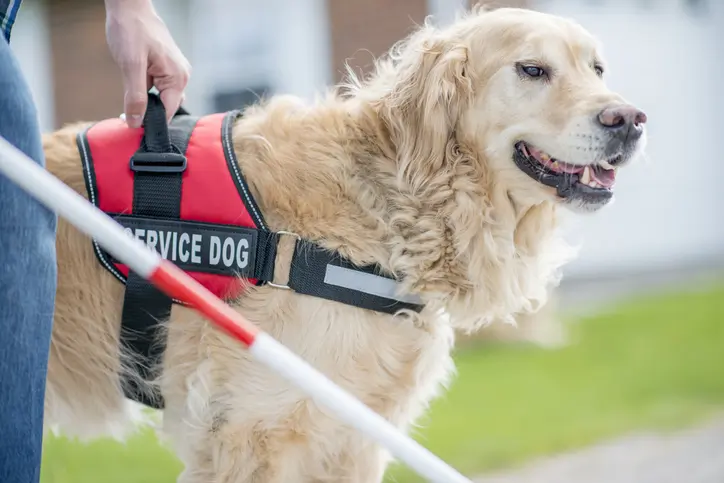In accordance with the ADA, Fenway Health and AIDS Action allows persons with disabilities accompanied by service animals to access all areas within our facilities where members of the public are permitted to go.
A service animal can be on a leash, a harness, a tether, or under control by voice, signals or other effective means of control. For purposes of this policy, the definition of “service animal” is limited to a dog, without breed or size restrictions, which has been individually trained to do work or perform tasks for the benefit of an individual with a disability. It includes dogs used by individuals with psychiatric or mental disabilities (e.g., PTSD) that are trained to perform specific tasks.
Examples of work or tasks such animals may be trained to perform:
- Assisting individuals who are blind or have low vision with navigation and other tasks
- Alerting individuals who are deaf or hard of hearing to the presence of people or sounds
- Providing non-violent protection or rescue work
- Pulling a wheelchair
- Assisting an individual during a seizure
- Alerting individuals to the presence of allergens
- Retrieving items such as medicine or the telephone
- Providing physical support and assistance with balance and stability to individuals with mobility disabilities
- Helping persons with psychiatric and neurological disabilities by preventing or interrupting impulsive or destructive behaviors
The following categories of animals are not allowed in Fenway Health or AIDS Action facilities:
- Emotional Support Animals (ESA): ESAs are therapeutic pets, frequently prescribed by a therapist or psychiatrist or doctor that help with emotional difficulties or with loneliness. It is mostly the pet’s mere presence alone that is beneficial. These are not the same as service animals.
- Therapy Animals: Not legally defined, but provides people with contact to animals. They are usually the personal pets of their handlers, and work with their handlers to provide services to others. Therapy animals usually are not service animals.
- Companion Animals: Not legally defined, but is accepted as another term for pet.
- Pets: A domesticated animal kept for pleasure/comfort rather than utility.


